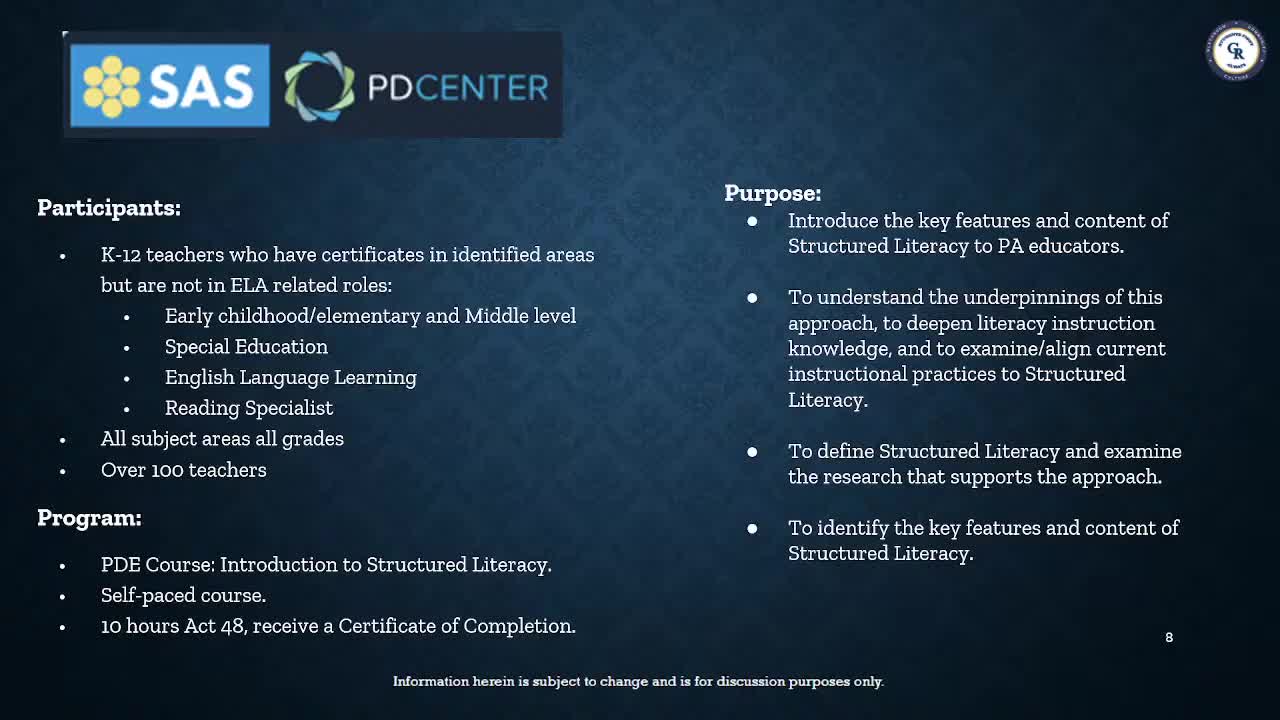Council Rock describes MTSS rollout, built-in WIN time and assessment calendar; parent reports sent Oct. 14
Get AI-powered insights, summaries, and transcripts
Subscribe
Summary
District leaders said MTSS now includes a 30-minute WIN intervention block in elementary schedules, expanded literacy specialists and Kindergarten assistants, consistent Tier 2/3 research-based interventions, use of LinkIt/Intervention Manager for documentation, and an assessment calendar posted online; DIBELS parent reports were mailed Oct. 14.
Tammy Gary briefed the Education Committee on Oct. 30 about Council Rock's multi-tiered system of supports (MTSS), the district assessment calendar for 2025'26, and parent reporting practices.
Gary said the district has built a 30-minute daily WIN intervention block into every elementary schedule to provide Tier 1 differentiation and Tier 2/3 supports. The district increased the number of literacy specialists across buildings, added kindergarten instructional assistants, and expanded licenses for I-Ready math diagnostics. For Tier 2 and Tier 3 work, Gary said interventions must be research-based, consistently implemented across buildings, and coordinated with special education so supports are sequential and not duplicative.
To document interventions and progress monitoring, the district is using LinkIt as its data warehouse and an Intervention Manager module to record plans, goals, and trend-line progress charts. Gary said Tom Barnes, the district data analyst, is working with principals and building data teams to interpret diagnostic data and support grouping and progress monitoring.
Gary reviewed the district assessment calendar and said the assessment pages on the district website include definitions, descriptions of each assessment and links to third-party resources. She listed the major assessments on the calendar: universal screeners (DIBELS for ELA; Acadience referenced), CDTs (Classroom Diagnostic Tests) for diagnostic use starting in third grade, PSSA and Keystone as state assessments, WIDA for English-language learners and PASA for the 1% special education population. Gary said the district mailed DIBELS parent reports to families on Oct. 14 and plans to move reporting to electronic delivery where feasible.
In committee Q&A, board members asked which assessments were mandated; Gary said PSSA and Keystone are the required Pennsylvania state assessments and that federal requirements center on funding, not specific test selections. She said the district is working to teach teachers to use diagnostic data and to involve students in data conferencing and goal setting. Gary said progress monitoring probes are typically given every two weeks during an intervention cycle and that the Intervention Manager charting helps teachers and parents track trendline progress.
Administrators noted that secondary MTSS takes a different form (attendance, grades, discipline, early warning systems) and that middle and high schools use different strategies for intervention and enrichment. No committee action or votes were taken during the presentation.
